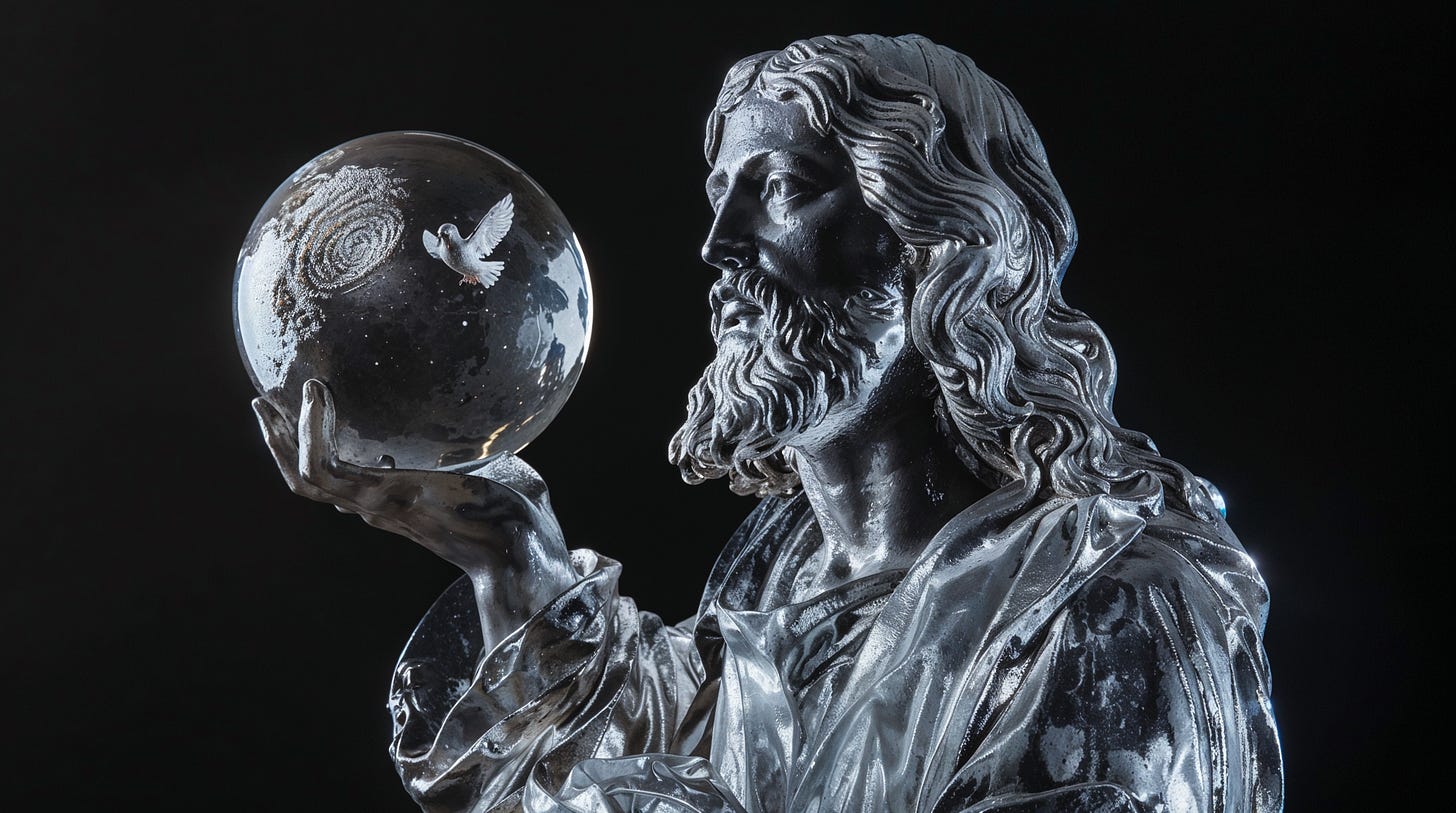
Never has the Christian been so deaf as when he supposes Christ cannot—or even will not—ever, at any time, choose to die on another world for another race of rational creatures.
Of course, to reject the possibility of multiple sacrifices for the cosmos, we must first cut to pieces and trample underfoot passages about a certain servant whose very nature is to relinquish reputation,1 and who is love from love,2 and who in every instance acts as good shepherd who always leaves the 99 sheep to go save the one who went astray.3 Let us forget reality for the moment so we can entertain a more pious and acceptable fantasy.
Such theologians (if I may use the term so loosely) who revere St. Peter have evidently also blindly and steadfastly followed his errors. For they ask Jesus with the very same false piety:
“Lord, how many times shall you forgive worlds who sin against you?
How many times are you willing to die to save such a world?
Up to one time?”
I can hear the response coming before the question is finished: “I say not unto thee one time,” replies the Christ, “but until seventy times seven!”4
“No!” Responds the disciple slow to understand, being too concerned with the aesthetic of piety, having in mind only the concerns of men: “it is simply not fitting for you to die again in such a manner. You cannot and must not die a second time!” To which the Christ yet again says, “Get behind me, Satan! You are an offense to me!”5
Who are you to damn any wayward sheep who spiral in spiritual retrograde from other faithful planets? Who are you to put an end to eternal humility, so that the divine may not be all in all?6 Who are you to suddenly quench the fires of everlasting love which even the floods cannot drown?7 Are you so foolish as to strain the gnat and swallow the camel?8
Not only can the spirit of Christ incarnate as a human, but Christ can incarnate as any creature the way one changes their clothes. For the scriptural text mystically says that Jesus put on “stained garments,”9 which is of course our human nature. Furthermore, to transcend the dimension of time for the purposes of incarnating within time, all hypothetical points of incarnation, whether it be one, two, or two hundred, all occur (from eternity) in the same moment simultaneously, and not strictly speaking chronologically. Linear time is a feature of our dimension, not God’s. Thus, there is no limitation in Christ at any point in the process.
Therefore, if there is ever a world in need of salvation, at present or in the future, then there the Savior will go.
Unto ages of ages, Amen.
Philippians 2:7.
1 John 4:7–12.
Matthew 18:12.
cf. Matthew 18:22.
Matthew 16:23.
cf. 1 Corinthians 15:28.
cf. Song of Solomon 8:7.
cf. Matthew 23:24.
Zechariah 3:3.




In this understanding, does Christ need to become (or “take on the flesh” of) a lamb for sheep (as part of Creation) to be reconciled to Himself?